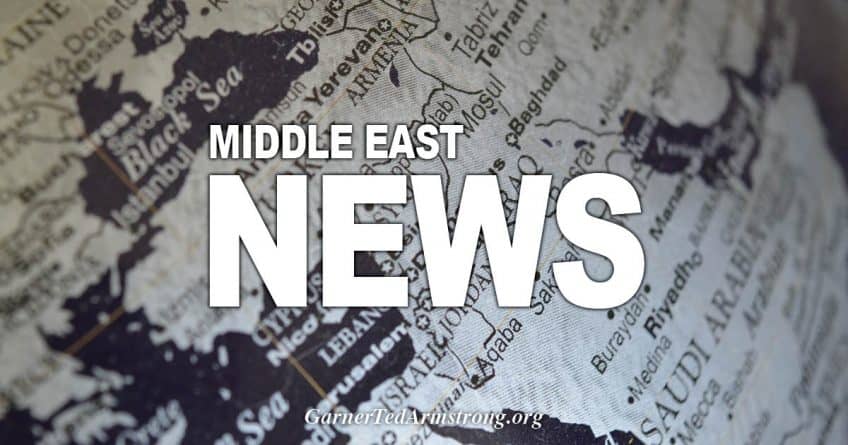Fighters from the Iranian-backed Shia militia Kata’ib Hizbolla, part of the Popular Mobilization Forces (PMF), at one of the front lines in Iraq. (Photo: Archive)
WASHINGTON DC (Kurdistan 24) – Two Iraqi Shiite groups have threatened the US and Israel following airstrikes Sunday night on a militia position in the Syrian town of Albu Kamal, close to the border with Iraq.
The attack may have killed as many as 52 fighters from the Popular Mobilization Forces (PMF), a coalition of groups that fought the Islamic State (IS), following its 2014 assault on Iraq.
The PMF first blamed the US for Sunday’s strike, but the US firmly denied any involvement, and CNN, along with Kurdistan 24, reported that Israel was likely responsible.
An Iranian-backed group, Kata’ib Hizbollah, was stationed in Albu Kamal. It was established, with Iranian backing, during Operation Iraqi Freedom (OIF) and attacked US forces then. Consequently, the US designated it a terrorist organization.
In last month’s elections—the results of which many Iraqis charge were rigged by Tehran—Kata’ib Hizbollah won 15 parliamentary seats.
On Tuesday, Kata’ib Hizbollah threatened, “The crime of the bombing” at Albu Kamal “will reopen the confrontation with the Zionist entity and the US schemes.”
The PMF are formally part of the Iraqi Security Forces (ISF) and Kata’ib Hizbollah was joined by another Iranian-backed militia, Asa’ib Ahl al-Haq, which demanded that Baghdad take “decisive action” against the “international and regional” plans that threaten Iraq and Syria—implying that Baghdad should tell US forces to leave, now that IS has been largely defeated in Iraq.
As the militias issued their threats and demands, however, the US denied any knowledge of key details of Sunday’s attack, suggesting it was not relevant to the US mission in Iraq.
Col. Sean Ryan, Spokesperson for the US-led Coalition against IS, formally known as Combined Joint Task Force-Operation Inherent Resolve (CJTF-OIR), speaking to Pentagon reporters by teleconference from Baghdad on Tuesday, was questioned about the strike on Albu Kamal.
Asked if Israel had carried out the attack, he replied, “I can’t comment,” adding that it was not the Coalition or the Iraqis, “and that’s really all we’re concerned about at this point.”
“It bothers me that a coalition spokesman can say something like that,” Paul Davis, a former Pentagon analyst, retired from the US Army, told Kurdistan 24, because the question of “who was behind the attack is relevant to your mission.”
When asked about possible retaliation for Sunday’s strike, Ryan responded that given the good US relations with the ISF, “I don’t think that’s ever going to be a concern”—as if there were not an extended history of Iranian-backed groups attacking US troops, whether in Lebanon in the 1980s or in Iraq during OIF—by some of the same groups that are now part of the ISF!
In February, Iraq’s Interior Ministry—headed by Qasim al-Araji, a senior member of the Badr Organization, another Iranian-backed group—announced that Iraq would soon open the border crossing with Syria at Albu Kamal.
The Middle East Institute’s “IranObserved Project” reported that Albu Kamal is a “strategic prize for Iran and its allies,” which had succeeded in capturing the border crossing ahead of a US-backed force.
“For the first time, Tehran will have land access to the Mediterranean coast and Beirut,” an online publication of Iran’s Islamic Revolutionary Guard Corps (IRGC) claimed, describing it as “an unprecedented development in Iran’s several-thousand-year history,” the MEI reported,
That would have been extremely troubling to Israel, of course, and would explain Sunday’s strike.
Ryan also sought to minimize the significance of the attack by claiming the force in Albu Kamal was not sent there by Baghdad.
Kurdistan 24 pressed as to who, then, had sent those forces there? Under whose authority were they operating?
Ryan provided no answer. They were Iraqi forces, he acknowledged, but once they crossed the border, they were “no longer under ISF control or direction.”
Michael Pregent, an Iraq expert at the Hudson Institute and formerly an adviser to US commanders during OIF, expressed his concern about the US position.
Pregent noted that the head of Kata’ib Hizbollah, Abu Mehdi al Muhandis, “is a designated terrorist,” yet he “controls the PMF budget.”
“He does not answer” to Iraqi Prime Minister Haidar al-Abadi, but “to Qasim Soleimani,” head of Iran’s IRGC-Quds Force.
“The US should not go out of its way to downplay the role of Iran and should admonish Baghdad for its support for IRGC-QF militias,” Pregent said.
Kurdistan 24 subsequently asked the State Department, if it was reasonable to understand the strike on Albu Kamal as a “warning to Baghdad” about Iran’s use of “its territory and personnel” in ways that Israel regards as threatening. The State Department Spokesperson, however, simply deferred to the Defense Department and the non-answers it had given earlier that day.
Source: http://www.kurdistan24.net/en/news/5c8883f6-be16-4ebf-95f5-a17c7fdf63dd
[Disclaimer]








